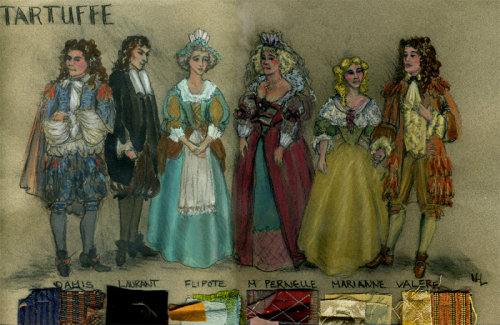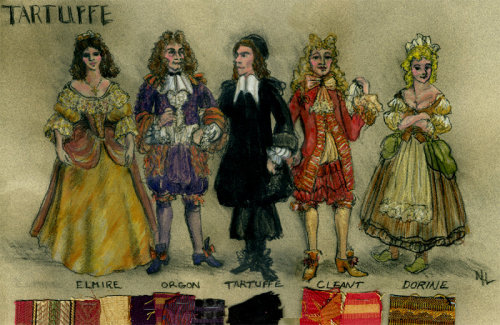Molière wrote Tartuffe in 1664. It was written in French and almost immediately censored by King Louis the XIV probably due to the influence of the Archbishop of Paris, who was the King’s confessor and had been his tutor.
Though Tartuffe was received well by the public and even by Louis XIV, it immediately sparked conflict amongst many different groups who were offended by the play. The factions opposed to Molière’s work included part of the hierarchy of the French Roman Catholic Church, members of upper-class French society, and the illegal underground organization called the Compagnie du Saint-Sacrement.
Tartuffe’s popularity was cut short when the Archbishop of Paris issued an edict threatening excommunication for anyone who watched, performed in, or read the play. Molière attempted to assuage church officials by re-writing his play to seem more secular and less critical of religion, but the church could not be budged.
The revised version of the play was called L’imposteur and had a main character titled Panulphe instead of Tartuffe. Even throughout Molière’s conflict with the church, Louis XIV continued to support the playwright; it is possible that without the King’s support, Molière might have been excommunicated. Although public performances of the play were banned, private performances for the French aristocracy were permitted.
In 1669, after Molière’s detractors lost much of their influence, he was finally allowed to perform the final version of his play. However, due to all the controversy surrounding Tartuffe, Molière mostly refrained from writing such incisive plays as this one again.
– Information found on Wikipedia






